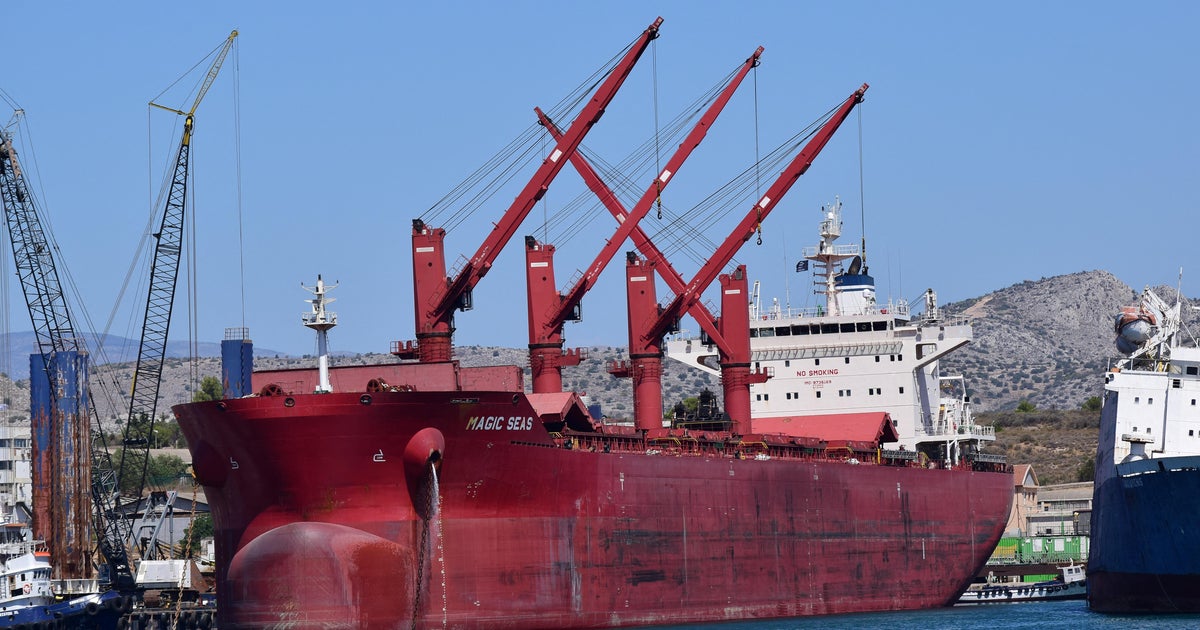

The U.S. Embassy in Yemen has issued a statement condemning the Houthi attack on a cargo ship in the Red Sea, resulting in the killing and kidnapping of crew members. The statement did not specify the exact number of casualties, but it strongly denounced the actions as a violation of international law and a threat to maritime security and freedom of navigation. The embassy called for the immediate and unconditional release of those kidnapped, demanding accountability for the violence against the innocent seafarers. The incident further underscores the ongoing instability and insecurity in the region, highlighting the dangers faced by commercial shipping transiting the Red Sea amidst the ongoing Yemen conflict. The lack of precise details surrounding the attack, such as the ship's nationality and the identities of the victims, suggests an ongoing investigation and a cautious approach by authorities in releasing information. The incident is likely to exacerbate concerns about the humanitarian crisis and the wider implications of the conflict in Yemen.

Dubai, United Arab Emirates — Several people remain missing Wednesday following an attack by on a Liberian-flagged cargo ship in the Red Sea.
Six castaway crew members of the Greek-owned Eternity C were recovered from the sea, said Wednesday. The Houthi rebels killed three mariners and wounded two others, the EU Operation Aspides said, and several crew members were kidnapped, according to the U.S. Embassy in Yemen.
"We call for their immediate and unconditional safe release," the U.S. Embassy said in a statement. "The Houthis continue to show the world why the United States was right to label them a terrorist organization."
A statement from the EU naval mission in the Red Sea said the crew of the ship included 22 sailors, among them 21 Filipinos and one Russian, as well as a three-member security team. Those rescued were five Filipinos and one Indian.
The attack on the merchant vessel followed a claim by the Houthis to have attacked and sank another vessel on Monday in the Red Sea, a vital maritime trade route.
The twin assaults are the first Houthi attacks on shipping since November 2024 and could signal the start of a new campaign by the Iran-backed Yemeni rebels threatening the waterway, which had begun to see more ships pass through it in recent weeks.
The Eternity C bulk carrier had been heading north toward the Suez Canal when it came under fire by men in small boats and by bomb-carrying drones on Monday night. Security guards on board also fired their weapons. The European Union Operation Aspides and the private security firm Ambrey both reported those details.
While the Houthis haven't claimed the attack, Yemen's exiled government and the EU force blamed the rebels for the attack.
The EU force offered the casualty information, saying one of the wounded crew members lost his leg in the attack. The crew remain stuck on board the vessel, which is now drifting in the Red Sea.
The Houthis separately attacked the Liberian-flagged, Greek-owned bulk carrier Magic Seas on Sunday with drones, missiles, rocket-propelled grenades and small arms fire, forcing its crew of 22 to abandon the vessel. The rebels later said the Magic Seas sank in the Red Sea.
The two attacks, and a round of Israeli airstrikes early Monday morning targeting infrastructure in rebel-held areas of Yemen, have raised fears of a renewed Houthi campaign against shipping that could again draw in U.S. and Western forces, particularly after President Trump's administration in a major airstrike campaign in April.
The attacks come at a sensitive moment in the Middle East, as a in the hangs in the balance, and as Iran weighs whether to restart negotiations over its nuclear program following American airstrikes targeting its most sensitive atomic sites during the Israel-Iran war in June.
The Houthis started launching strikes against vessels in the Red Sea, including U.S. warships, and against Israel, in what they describe as solidarity with the Palestinians, soon after Hamas sparked by launching its unprecedented terrorist attack on Israel in October 2023.
The latest attacks have also raise new questions about the Red Sea's safety as ships had slowly begun returning to its waters.
"We are now with grave concern seeing an escalation in the Red Sea with attacks on two commercial ships earlier this week by Ansar Allah, resulting in civilian loss of life and casualties as well as the potential for environmental damage," warned United Nations special envoy Hans Grundberg, using another name for the rebels.
Between November 2023 and January 2025, the Houthis targeted more than 100 merchant vessels with missiles and drones, . Their campaign has greatly reduced the flow of trade through the Red Sea corridor, which typically sees $1 trillion of goods move through it annually. Shipping through the Red Sea, while still lower than normal, has increased in recent weeks.
The Houthis paused attacks until the U.S. launched a broad assault against the rebels in mid-March. That ended weeks later and the Houthis hadn't attacked a vessel until this weekend, though they did continue occasional missile attacks targeting Israel.





